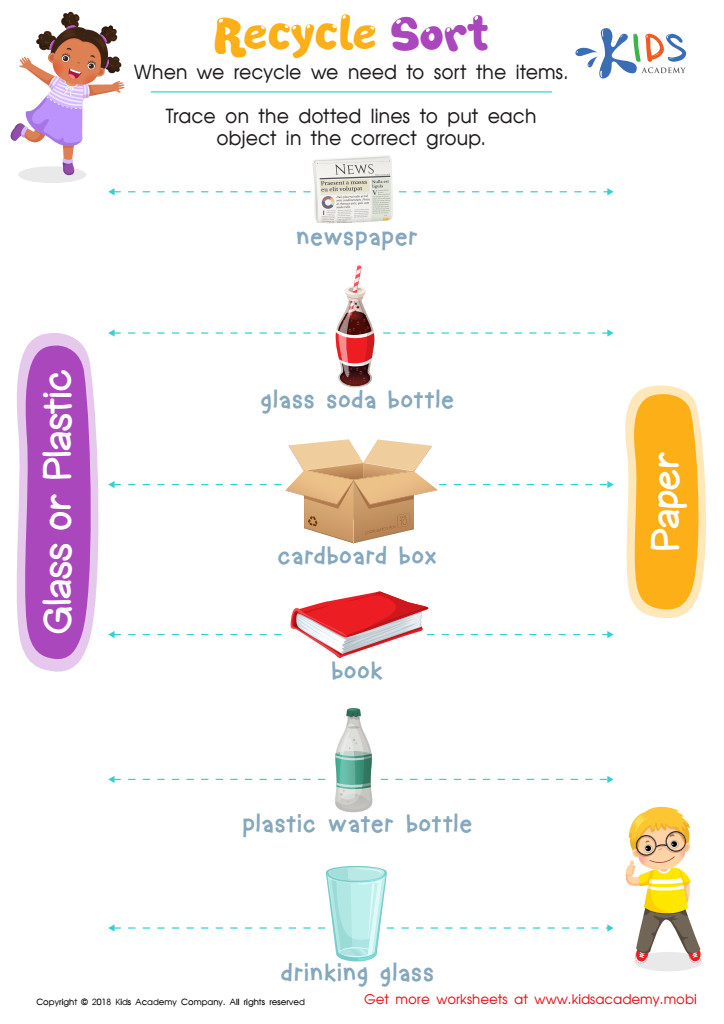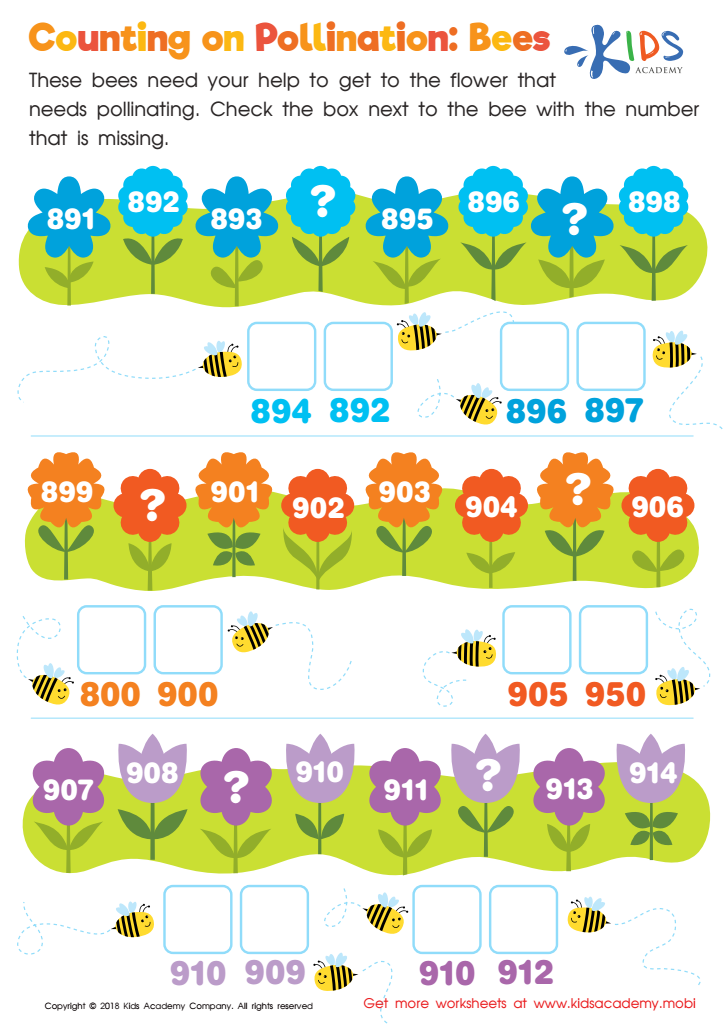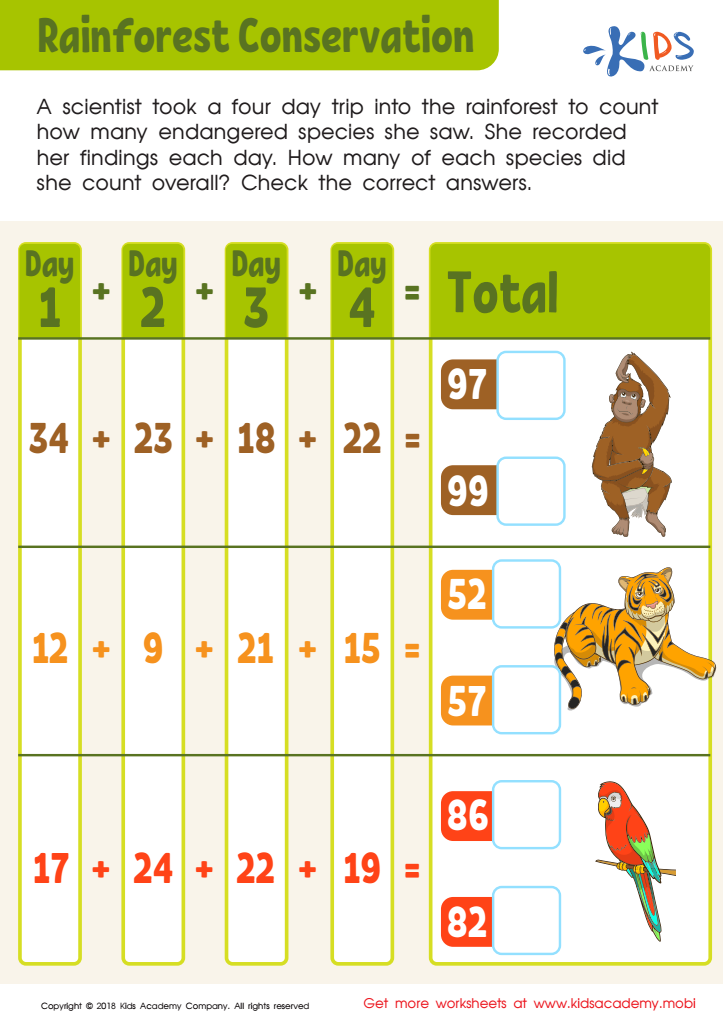Environmental awareness Normal Math Worksheets for Ages 3-7
3 filtered results
-
From - To
Our "Environmental Awareness Normal Math Worksheets for Ages 3-7" blend foundational math skills with essential lessons on ecological responsibility. Designed for young learners, these engaging worksheets teach counting, addition, and subtraction while illustrating important environmental concepts like recycling and conservation. Each activity not only enhances mathematical abilities but also fosters a sense of environmental stewardship, helping children connect with nature and the importance of protecting our planet from an early age. Perfect for parents and teachers, these resources inspire a love for math and the environment, setting a strong foundation for lifelong learning and environmental consciousness.


Recycle Sort Worksheet


Counting on Pollination: Bees Worksheet


Rainforest Conservation Worksheet
Environmental awareness and basic math skills are crucial foundations that parents and teachers should prioritize for children aged 3-7. Introducing environmental concepts helps young children develop a sense of responsibility toward their surroundings early on. By understanding simple ideas like recycling, conserving water, and protecting wildlife, children cultivate habits that contribute to a healthier planet. These habits, when nurtured from a young age, can grow into lifelong commitments to environmental stewardship. This awareness fosters empathy and respect for nature, which are essential for becoming conscientious global citizens.
Similarly, normal math skills form the bedrock of cognitive development. Early math education improves problem-solving abilities, analytical thinking, and logical reasoning. These skills not only support academic success but are vital for everyday tasks. Simple math exercises involving counting, sorting, and recognizing patterns enhance a child's ability to understand and interact with the world effectively.
Combining environmental awareness with math activities offers a holistic approach to learning. For instance, counting trees, sorting recyclables by number and type, and measuring plant growth are engaging ways to integrate these subjects. Such interdisciplinary learning makes education more relevant and enjoyable, setting the stage for a lifetime of curiosity and proactive engagement with both the environment and numeracy skills.

 Assign to My Students
Assign to My Students





















